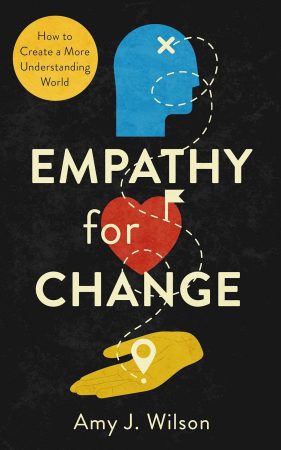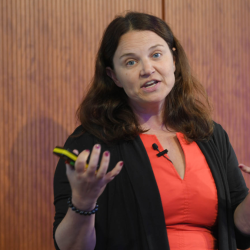>Before you begin reading this, make sure you have your RSN ready. (Your RSN is your Reader Subscriber Number.)
I’ve just realised how much I like the run-up to elections. Every night when I switch on the TV, I feel there are people who care for me, understand me and want to do their very best for me. I don’t get that when I switch the TV off. I don’t even get that when I contact brands I’ve paid money to.
>Are you still there? You now have 30 seconds to continue reading this article or you’ll be disconnected.
The old quip about the secret of success being sincerity (and once you can fake that, you’ve got it made), misses. What politicians are so good at faking… is empathy. They know what brand owners often take a long time to learn. The more like us they appear to be, the more we’ll support them. Political marketing creates a world where we believe that our politicians understand us. Cheeky grinning Nigel with his pint. Any other politician in a high viz vest.
Politics is often cited as being ‘downstream of culture’ yet in the cultural world co-created by brands, we’re experiencing what President Obama described as an ‘empathy deficit’.
What can we do to learn from political marketing and build brands that engage with more empathy?
>To read the rest of this article, complete by hand this 2-page form of personal details we’ve already insisted on taking from you on the phone before you could sign up.
The lack of empathy, and how to rediscover and deploy it effectively, is the subject of Amy J Wilson’s book, Empathy for Change. Amy has operated in the highest political levels. She was a White House Entrepreneur-in-Residence, first with President Obama (who said he was more worried about the ‘empathy deficit’ than the trade or budget deficit) and then for a shorter term under President Trump.
I have been fortunate enough to meet Amy (yes, her levels of empathy are sky high, reading between the lines of my quick WhatsApp to understand what I wanted to ask for her help with, but didn’t feel I could). I can’t speak for her politics, but she opens one chapter with a quote from Martin Luther King: … since we know the system will not change the rules, we are going to have to change the system. Amy’s learning from political marketing and what it means for people comes from both her experience in an increasingly politicised White House, and the small ‘p’ politics of change at ground level.
>Would you like to comment? The fastest way to get in touch is to download our app and put in your details. Remember. We will reject any message that contains curse words or is incorrectly formatted or includes any special characters. But that’s fine. We’ll send you a pro-forma reply which will show how little attention we paid to what you wrote anyway.
Her book sets out the challenge by reflecting on research which has measured empathy levels in college students over decades: innate empathy is declining as narcissism increases. What’s happened? While the quest for maximum personal achievement, including calls for more ‘grit’ might seem like a good idea, the resultant increase in self-absorption produces isolation from (and a lack of contribution to) society, accelerated by broader socio-political changes. Yet Amy sees good news here. If empathy can be destroyed by external factors, surely it can also be increased by external efforts?
This book is not a front-to-back read. Instead, it’s a toolbox of ideas and practices (or I’d like to think, a set of ‘tools for conviviality’ as Ivan Illich described them) for anyone actively involved in small ‘p’ political marketing and change. That change can be at national level, local level, within an organisation, or within themselves.
Her framework is inspired by human-centred design
It prioritises sustainable change through building the right culture and systems. It depends on the workers’ voice and collaboration, getting as close as humanly possible to where the problems exist and experiencing them first-hand, calling for a bottom-up process, rather than another top-down set of instructions (which typically has a 70% failure rate). There’s a parallel to this idea of closeness in political marketing.
While all political campaigning can be criticised for being performative rather than authentic, the least successful politicians are often portrayed as being hidden away in the back of their chauffeured car, while Nigel Farage tours around on an open-top bus. Every time he’s photographed wearing a McDonald’s milkshake, it might seem like a PR disaster, but the images show him up close and within touching distance of crowds of people.
When Keir or Rishi want to seem more in touch, they use storytelling — another classic technique for creating empathy, revealing their earliest life experiences (apparently, Rishi couldn’t afford Sky TV growing up).
Storytelling has been a recurring trope of political marketing
But Amy details the different ways storytelling can be used for political and systems change. Reflecting on the work of Ella Saltmarshe, she draws the idea that we can use story in three ways: as light, glue, and web.
When we use storytelling as light, we are using it to make visible paths that run from our past into our future. With story as glue, we’re undermining the prevailing -isms that sit in our dialogues, and so connect people by focusing on what connects them rather than divides them.
And finally, we can use story to create empathy and build a coherent group by giving them a shared set of wishes and challenges. Empathy seems to many people to be a discretionary soft skill. Something to be used when times are good. But if we weren’t already aware of how political marketing depends on building empathy, Amy shows how empathy can become a leader’s superpower, becoming a catalyst for long-term sustained change.
It is the way to guide our understanding of any situation we find ourselves in and so, fundamental for any thinking of how we can create a better society.
>You have been logged off. Use your RSN to log back in and continue reading.
Empathy for Change: How to Create a More Empathetic World by Amy Wilson is available from un-empathetic websites and Amy’s website.
Chris West created posters for the Conservatives and the Labour Party.
His book, Strong Language: The Fastest, Smartest, Cheapest Marketing Tool You’re Not Using is a #1 best-seller and explains how brands can build more effective language. He writes more on LinkedIn.
Featured image: August de Richelieu / Pexels

































